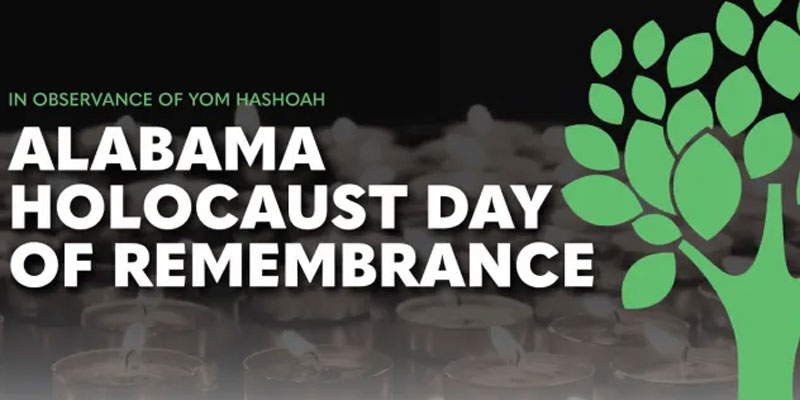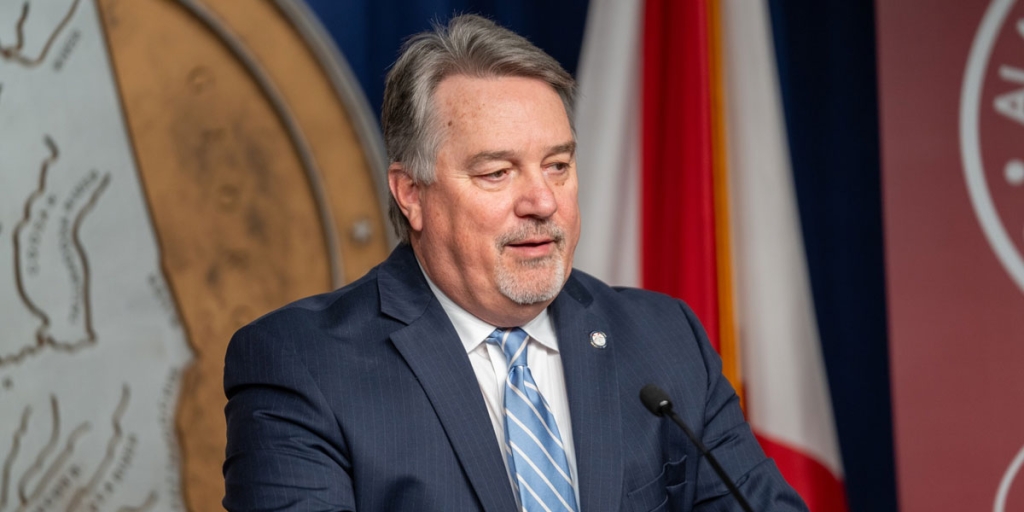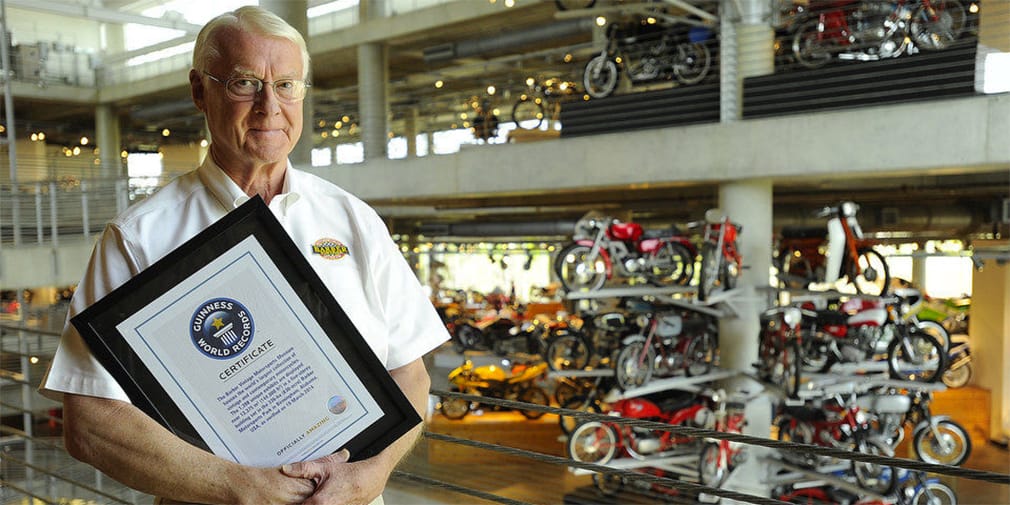American prisoner of war Roddie Edmonds stood in front of more than 1,200 fellow POWs, the commandant of a German Stalag holding a Luger to Edmonds’ head.
The day before, the commandant had demanded that all Jewish POWs among the 1,200-plus noncommissioned officers captured during World War II’s Battle of the Bulge in December 1944 present themselves outside their barracks the next morning. Edmonds, a master sergeant from Knoxville, Tennessee, was the group’s ranking officer. He ordered all the American POWs to stand in formation, like they did every morning.
The commandant was furious. “You can’t all be Jews!” he said. Edmonds replied, “We are all Jews here.”
That’s when the German drew his pistol and threatened to kill Edmonds. “You will order the Jews to step forward, or I will shoot you right now.”
Edmonds told the commandant he would have to shoot all the prisoners and that after the war, which was nearing its end with Germany losing, he would be prosecuted for war crimes. The commandant about-faced and walked away. Among the POWs were 200 Jewish GIs. Edmonds’ remarkable bravery while staring down death saved their lives.
Edmonds’ son, Chris, senior pastor of Piney Grove Baptist Church in Maryville, Tennessee, will be the featured speaker Sunday, April 11, at 2 p.m. at Alabama’s Holocaust Day of Remembrance. The annual observance of Yom HaShoah honors the memory of the 6 million Jews killed in the Holocaust, and Alabama’s survivors and their families. The event will be livestreamed. Click here to register.
Chris Edmonds recently received the Righteous Among the Nations award from Israel and Yad Vashem, the World Holocaust Remembrance Center, on behalf of his father, who died in 1985. This story’s account of Roddie Edmonds’ heroism came from the classroom version of the award-winning documentary “Footsteps of My Father,” made by the Jewish Foundation for the Righteous in 2018.
Alabama’s Holocaust event is organized by the Alabama Holocaust Commission, the Birmingham Holocaust Education Center and the Jewish Community Relations Council of the Birmingham Jewish Federation. The observance will include a rededication of the Anne Frank Tree in Kelly Ingram Park in downtown Birmingham.
In 2010, a group of Birmingham organizations planted a horse chestnut tree in the park to memorialize Frank, the young Jewish Holocaust victim who kept a diary of her experiences and could look out at a large horse chestnut tree in the garden as she and her family hid from the Nazis. The tree planted in Birmingham did not survive the Alabama climate. On April 11, the groups will rededicate an American beech that has replaced the horse chestnut tree.
Alabama Gov. Kay Ivey will make a proclamation at the event and Gilad Erdan, Israel’s ambassador to the United States, will speak. Birmingham Mayor Randall Woodfin is part of the program, which includes music by violinist Niv Ashkenazi as part of the Violins of Hope, an artistic project of the restored instruments played by Jewish musicians in Holocaust camps. A candle-lighting ceremony will recognize Holocaust survivors and their families.
One of those survivors is Birmingham’s Dr. Robert May, who celebrated his 95th birthday in February. The retired OB-GYN counts himself extremely fortunate that he and his immediate family survived the Holocaust, although an aunt and uncle who helped them perished in Auschwitz.
“I have lived a long life. I’m 95 years old. It has been a fortuitous life. I have survived a disaster that happened to some of my family,” he said.
May was born in 1926 in Camberg, Germany, a small town about 50 miles from Frankfurt. He remembers playing soccer and marbles with other children in the park and living an “essentially normal” life – until Adolf Hitler rose to power in 1933 when May was 7.
“I was totally isolated after Hitler came to power,” he said. “Everyone knew everyone else, and knew we were Jewish. I was an outcast. By age 9, it became impossible for a kid to have a normal life because of isolation more than any physical harm.”
May remembers the indoctrination of his classmates into the Hitler Youth and being jealous of the fancy uniforms they wore.
“One of the episodes I remember vividly, I was chased by a couple of Nazi-uniformed kids in my class. They called me a dirty Jew. I escaped by way of a little entrance into our house in the back,” he said. “I told my father about it and that I called them a dirty Nazi back. My father said, ‘Don’t do that. There’s no need to aggravate them. Just run home and get away from them but don’t call them names.’
“That was the basic attitude of the Jews at the time,” May said. “’This will pass, we’ve been through worse.’ The attitude was, people will come to their senses.”
But they didn’t.
As things got worse for May, his Aunt Emma moved with him to Frankfurt in 1936, leaving behind his parents in Camberg. They lived in an apartment owned by his wealthy Uncle Siegmund, who had escaped Germany and lived in Holland. May’s uncle paid for him to attend the Philanthropin, a Jewish school that gave him an “extraordinary” education, until Kristallnacht in November 1938.
During Kristallnacht, or “Night of Broken Glass,” German mobs of paramilitary forces and civilians attacked and damaged or destroyed thousands of businesses and synagogues, killing at least 91 Jews, according to Encyclopedia Britannica. Many others died after being arrested. Some 30,000 Jewish males from 16 to 60 were sent to concentration camps.
A neighbor had warned May and his Aunt Emma to leave their apartment, which rioters ransacked. The school and synagogue he attended were torched. Soon after, May, who was 12, traveled alone to Brighton, England, under the Kindertransport program. The rescue effort by the British government fed, educated and housed thousands of refugee children, most of them Jewish. Uncle Siegmund paid for May to attend a Jewish boarding school.
May’s parents, with only two suitcases, escaped to London two days before the war started in summer 1939, awaiting a visa to travel to the United States. May, his parents and his two older brothers, who had left Germany years earlier, ended up in New Orleans in 1940, where relatives lived. Meanwhile, Germany conquered much of Europe, including Holland, where May’s Aunt Emma had joined Uncle Siegmund.
“In 1940, when Hitler invaded Belgium and Holland and defeated France, they were overrun by the Germans in Amsterdam, deported in 1942 or 1943 and were killed in Auschwitz,” May said.
Fast-forward through May’s life to now: medical school in New Orleans, two years in the Air Force, marriage, moving to Birmingham in 1953 to start a medical practice, three children, eight grandchildren and five great-grandchildren over the course of almost a half-century as a doctor and finally, retirement. His life, he said, could have happened “only in America.”
“I’m married to a young lady that I’ve been married to 67 or 68 years. We’re still living in the same house we’ve lived in for 55 years. I have no complaints,” May said.
He paused.
“I do remember my aunt and uncle and what happened to them. Without them, I would not be here.”
Holocaust education
One of May’s children is Ann Mollengarden, education director of the Birmingham Holocaust Education Center. Stories like her father’s help people understand the impact the Holocaust had at a personal level.
“The difficulty with this subject is the magnitude,” she said. “Because of the magnitude, it often becomes something that is unrelatable. So it needs to be drawn down to the individuals and to their experiences, which are really diverse.
“Instead of making it about 6 million (deaths), it’s putting a face to the events,” Mollengarden said.
With hate speech and the number of hate crimes growing and Holocaust deniers spewing their lies on the internet and social media, educating people about the Holocaust remains a critical mission of BHEC, with the goal of creating a “more just, humane and tolerant future.”
“This was a time when humanity really went awry, and it is a representative time for all groups of people as to what can go wrong when we don’t follow the norms of humanity,” Mollengarden said. “We should be studying about this and learning about this because it shows how we can go wrong, how democracy can fail, how human beings can fail, and what we are capable of doing.”
Zoe Weil, BHEC’s director of programs and outreach, notes that hate speech can lead to hate crimes and to something far worse, as events in Germany under the Third Reich proved.
“It didn’t start with the camps. It was an incremental, slow process,” she said. “That’s one of the reasons why a large population accepted it, or didn’t do as much as they should have because of those incremental laws of, oh, Jews can’t go to the park anymore. Jews can’t stay out past 7 anymore. No more Jewish businesses. Jews have to wear stars. Jews have to live in one area.”
Each of those steps, one after another, led to violence, to widespread killings and, ultimately, to state-sponsored, mass murder in concentration camps – not just 6 million Jews, but millions more people in other, targeted groups.
“That’s part of Holocaust education, learning the dangers of letting those ideas and thoughts and actions continue,” Weil said.
Not every Holocaust survivor endured the horrors of a concentration camp. Some fled, others went into hiding during the war.
“We define a survivor as anyone whose lives came under the Third Reich,” Mollengarden said.
BHEC continues working to document the stories of survivors who live or have lived in Alabama. With a founding board of directors that included Holocaust survivors, that’s one of the reasons for BHEC’s existence. “It was their hope that really spurred all of this because they want their stories to be told, and they wanted to assure that their stories would continue to be told,” Mollengarden said.
BHEC’s survivors’ archive includes more than 170 names, and Mollengarden invited the public to let BHEC know of survivors it has not documented or to provide additional information about the survivors listed. As the number of living survivors dwindles, the BHEC wants to do all it can to preserve and tell their stories – through the archive, through children of survivors telling their family’s stories, through others telling stories of survivors who have died.
“That is our goal, to continue to tell these stories because they won’t be around forever,” Mollengarden said. “These stories are so important.”
(Courtesy of Alabama NewsCenter)













